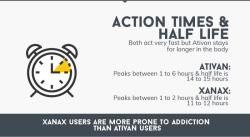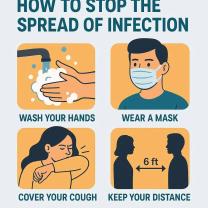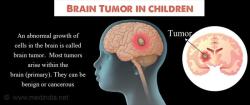What to know about feeling tightness in the chest?
Feeling tightness in the chest can be a concerning and uncomfortable sensation that may have various underlying causes. Here's what you need to know about chest tightness:
1. Possible Causes:
- Anxiety and Stress: Anxiety and stress can cause chest tightness, often referred to as a "nervous chest." It can feel like a squeezing or pressure in the chest area.
- Heart-related Issues: Chest tightness can be a symptom of heart-related problems, including angina (reduced blood flow to the heart) or a heart attack (myocardial infarction).
- Gastroesophageal Reflux Disease (GERD): Acid reflux can cause a burning sensation and tightness in the chest, often mistaken for heart issues.
- Muscle Strain: Strained chest muscles due to heavy lifting, intense workouts, or physical injury can result in chest tightness.
- Respiratory Conditions: Conditions like asthma, bronchitis, or pneumonia can lead to chest tightness, coughing, and difficulty breathing.
- Allergies: Allergic reactions can cause chest tightness, especially if accompanied by wheezing and hives.
- Panic Attacks: Panic attacks can mimic heart attack symptoms, causing sudden chest tightness, palpitations, and shortness of breath.
2. Seek Medical Attention:
- If you experience sudden and severe chest tightness, especially if it's accompanied by other concerning symptoms like shortness of breath, pain radiating to the arm, neck, jaw, or back, nausea, or lightheadedness, seek immediate medical attention. These could be signs of a heart attack or another serious medical condition.
3. Evaluation and Diagnosis:
- If you have recurring or persistent chest tightness, consult a healthcare professional for an evaluation. They may perform various tests, including an electrocardiogram (ECG or EKG), chest X-ray, blood tests, or stress tests to determine the cause.
4. Treatment and Management:
- Treatment for chest tightness depends on the underlying cause. For anxiety-related chest tightness, stress management techniques, therapy, or medications may be recommended.
- Heart-related issues may require medications, lifestyle changes, or even surgical interventions.
- Respiratory conditions like asthma can be managed with medications and inhalers.
- GERD-related chest tightness may respond to dietary changes, antacids, or prescription medications.
- Muscle strains typically improve with rest, pain relievers, and physical therapy.
5. Prevention:
- To prevent chest tightness related to heart health, maintain a healthy lifestyle with regular exercise, a balanced diet, and stress management.
- If you have allergies, take allergy medications and avoid triggers.
- Manage stress and anxiety through relaxation techniques, counseling, or mindfulness practices.
6. Follow Medical Advice:
- If a healthcare professional diagnoses the cause of your chest tightness, follow their recommended treatment plan and lifestyle modifications.
It's essential not to ignore chest tightness, especially if it is sudden, severe, or associated with other concerning symptoms. Seek medical evaluation promptly to determine the cause and receive appropriate care. Chest tightness can have various origins, so a proper diagnosis is crucial for effective treatment and peace of mind.
Feeling Chest Tightness: Causes, Symptoms, and More
Chest tightness is a common symptom that can be caused by a variety of factors, including:
- Heart problems: Chest tightness can be a symptom of a heart attack, angina pectoris, or pericarditis.
- Lung problems: Chest tightness can be a symptom of asthma, pneumonia, or pleurisy.
- Gastrointestinal problems: Chest tightness can be a symptom of heartburn, gastroesophageal reflux disease (GERD), or esophagitis.
- Musculoskeletal problems: Chest tightness can be caused by muscle strain, costochondritis, or rib fracture.
- Anxiety: Anxiety can cause a variety of physical symptoms, including chest tightness.
Other potential causes of chest tightness include:
- Allergies
- Anemia
- Blood clots
- Drug overdose
- Hyperventilation
- Lung cancer
- Pulmonary embolism
- Thyroid problems
Symptoms of chest tightness
Chest tightness can feel like a pressure, squeezing, or fullness in the chest. It may be accompanied by other symptoms, such as:
- Shortness of breath
- Pain in the chest, neck, jaw, or arms
- Sweating
- Dizziness
- Nausea
- Vomiting
What to do if you feel chest tightness
If you feel chest tightness, it is important to seek medical attention immediately, especially if you have any other symptoms such as shortness of breath, pain, or sweating. Chest tightness can be a symptom of a serious medical condition, so it is important to get it checked out by a doctor.
Treatment for chest tightness
Treatment for chest tightness will depend on the underlying cause. For example, if chest tightness is caused by a heart attack, the doctor may prescribe medication to dissolve the blood clot or perform surgery to open the blocked artery. If chest tightness is caused by anxiety, the doctor may prescribe medication or therapy.
Chest Tightness: What It Means and How to Respond
Chest tightness can be a scary symptom, but it is important to stay calm and assess the situation. If you are feeling chest tightness, ask yourself the following questions:
- Is the pain sharp or dull?
- Is the pain constant or intermittent?
- Is the pain radiating to other areas of your body?
- Do you have any other symptoms, such as shortness of breath, sweating, or dizziness?
If the pain is sharp and constant, and you are experiencing other symptoms such as shortness of breath and sweating, call 911 immediately. This could be a sign of a heart attack or other serious medical condition.
If the pain is dull and intermittent, and you do not have any other symptoms, you can try to relax and see if the pain goes away. If the pain does not go away, or if you are concerned about it, see a doctor.
Chest Discomfort Unveiled: Understanding Tightness
Chest tightness can be a vague symptom, and it can be difficult to determine the underlying cause. However, there are a few things you can do to help understand the cause of your chest tightness:
- Keep a symptom journal. Write down the date and time of each episode of chest tightness, as well as any other symptoms you are experiencing. This information can be helpful to your doctor when diagnosing the cause of your chest tightness.
- Think about your lifestyle. Are you under a lot of stress? Do you smoke? Do you have any other medical conditions? These factors can all contribute to chest tightness.
- Pay attention to your triggers. Are there any specific activities or situations that seem to trigger your chest tightness? This information can be helpful to your doctor when determining the cause of your chest tightness.
If you are experiencing chest tightness, it is important to see a doctor to get a diagnosis and discuss treatment options.












